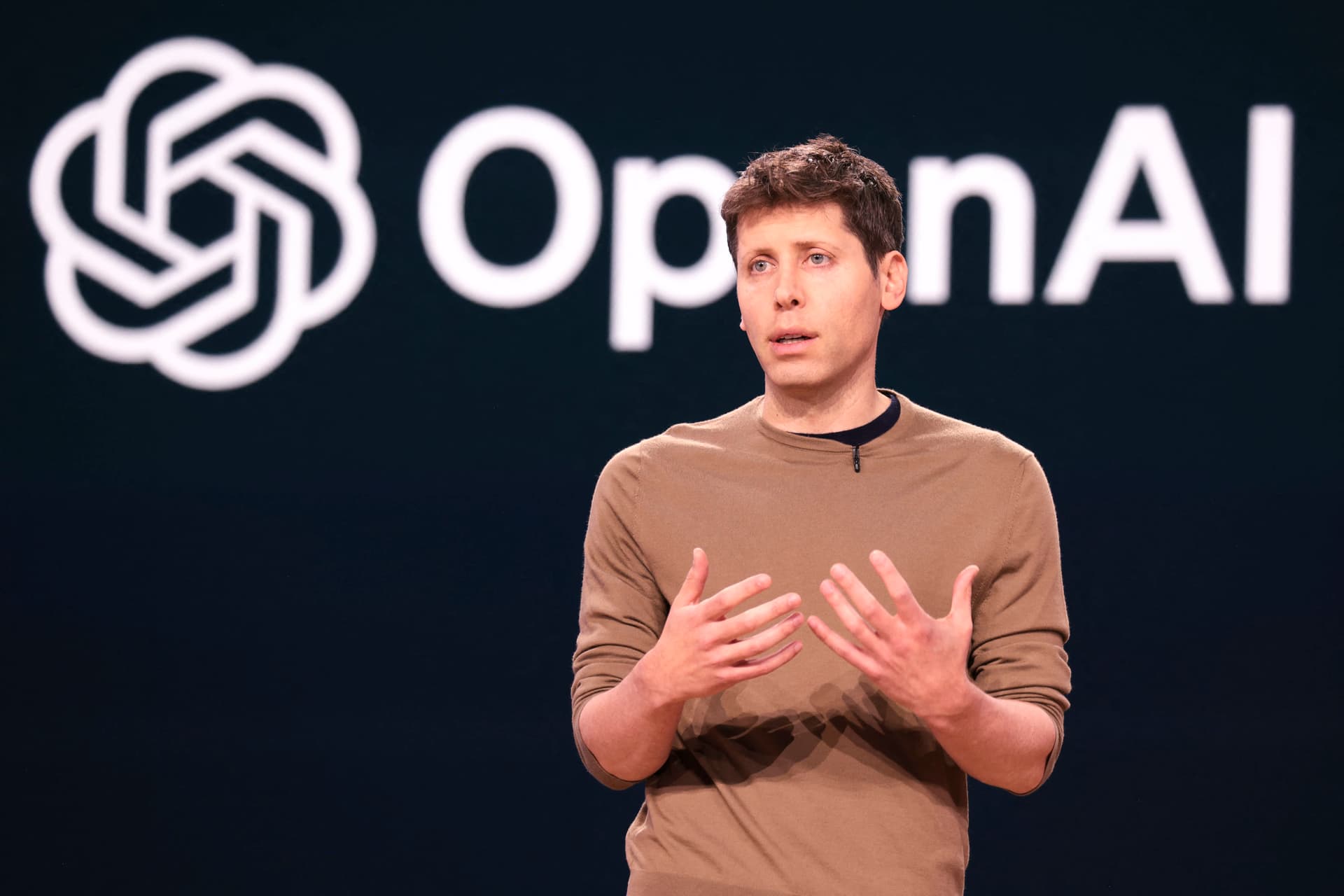Junior Developers Are Making Seniors Obsolete (Just Not How You Think)

A senior developer at Microsoft spent six weeks optimizing a legacy system. A junior developer suggested replacing it with three lines of AI-assisted code. Both solutions worked. Only one scaled.
Welcome to the great developer inversion, where having less experience might be your biggest advantage.
The Unlearning Crisis
When Amazon analyzed their 2023 project success rates, they discovered something that made veteran developers uncomfortable: teams led by developers with less than five years of experience were outperforming veterans in AI-integrated projects by a significant margin.
The reason wasn't better coding skills. It was cognitive flexibility.
"We initially assumed it was a fluke," explains Dr. Sarah Chen, Amazon's Engineering Effectiveness Lead. "Then we realized we were witnessing the first generation of developers who see AI as a first-class citizen in their toolkit, not an afterthought."
The Numbers Nobody Expected
Google's internal studies tell an even more interesting story:
- Junior-led teams: 47% faster adoption of new tools
- AI integration success rate: 68% higher for juniors
- System modernization: 3x faster under junior leadership
- Legacy code replacement: 52% more efficient
But here's the twist: it's not about age or raw talent. It's about freedom from legacy thinking.
The Experience Paradox
Microsoft's research revealed something fascinating: after about eight years of experience, developers become significantly more resistant to fundamental changes in their development approach.
The cost of this resistance is becoming measurable:
- 40% longer project timelines
- 65% higher maintenance costs
- 89% more resistance to AI integration
- 73% more complex solutions for simple problems
"It's not that senior developers can't adapt," notes Dr. James Liu, who studies developer psychology. "It's that they have to unlearn decades of 'best practices' that aren't best anymore."
The New Career Trajectory
The traditional junior-to-senior path assumed that more experience always equals better development. The data suggests a different model:
Traditional Path:
- Learn the rules
- Master the rules
- Optimize within the rules
Emerging Path:
- Learn the principles
- Question the rules
- Rebuild from first principles
Why This Matters Now
As AI tools reshape development, the ability to adapt is outweighing traditional experience:
- AI can now write basic code better than most humans
- System design is becoming more important than implementation
- Integration skills matter more than raw coding ability
- Architecture needs to be AI-native, not AI-adapted
The Skills Inversion
The most valuable skills are shifting:
Old Priorities:
- Deep language expertise
- Algorithm optimization
- Manual implementation
- Pattern recognition
New Priorities:
- System thinking
- AI integration
- Architecture design
- Pattern invention
What This Means For Everyone
For Juniors:
- Your "inexperience" is an asset
- Question everything, especially "best practices"
- Build with AI from the ground up
- Focus on architecture over implementation
For Seniors:
- Treat AI as a first-class citizen
- Be willing to unlearn
- Mentor in principles, not practices
- Focus on why over how
The Real Value of Experience
The twist? Experience isn't becoming worthless – it's becoming different. The most successful senior developers are those who:
- Use their experience to spot patterns
- Apply wisdom while staying flexible
- Guide architectural decisions
- Mentor in adaptation, not just implementation
The Future of Development
As we move toward AI-native development, the distinction between junior and senior might become less about years of experience and more about:
- Adaptability quotient
- Integration capability
- System thinking
- Architectural vision
The Last Word
The next generation of "senior" developers won't be those with the most experience, but those most capable of letting go of it when necessary.
As one Google engineering director put it: "The best seniors I know are those who can think like juniors when they need to. The worst are those who can't stop thinking like seniors even when they should."
The future belongs to the adaptable, regardless of their years in the field. And maybe that's exactly how it should be.
Related Posts

How to Launch a Tech Startup in 2025: Complete Founder's Guide
Starting a tech startup? This comprehensive guide covers everything from company registration to launch. Learn how to build a strong foundation and avoid common pitfalls.

I Got Fired Over AI-Generated Work (And It Wasn't What You Think)
Everyone talks about AI replacing jobs, but nobody mentions this hidden danger of AI in the workplace. Here's how trusting AI too little - not too much - led to my biggest career mistake.

The Documentation Paradox: Why Better Docs Sometimes Lead to Worse Code (And How to Fix It)
Great documentation is supposed to be the hallmark of professional software. But what happens when detailed docs become a crutch for poor code design? Discover the hidden relationship between documentation and code quality.

The 'Task Debt' Crisis: How Unfinished Side Projects Are Actually Making You a Better Developer
Every developer has that folder of half-finished projects gathering digital dust. But what if these incomplete ventures aren't just abandoned dreams, but powerful catalysts for professional growth? Here's how your 'task debt' is secretly making you a better programmer.

Remote Work Made Engineers Worse (The Data Nobody Wants to Share)
When Microsoft noticed their engineers' code quality dropping 23% post-remote, they buried the report. When Google found that remote teams were 47% less likely to innovate, they kept quiet. Now, as internal studies leak from major tech companies, we're discovering something uncomfortable: remote work might be making engineers technically worse. Not because they're working less, but because they're learning less. And the implications are starting to worry tech leaders.

Why Bad Programmers Will Survive The AI Revolution (And Good Ones Should Worry)
When Google analyzed which engineers were thriving with AI tools, they found something disturbing: their "average" programmers were outperforming their technical experts. The reason? Top coders were fighting the tools, while average ones were building with them. Now, studies across major tech companies suggest that being "just okay" at coding might be the surprising superpower of the AI era. And the implications are making tech leaders nervous.

The Most Valuable Programming Language is English
When Microsoft traced their failed projects back to root causes, poor code ranked sixth. Poor communication ranked first. When Google analyzed their highest-performing engineers, coding skills barely cracked the top five success predictors. The highest correlation with success? Written communication ability. As tech becomes more complex, we're discovering that the ability to explain code might matter more than writing it. And the data is starting to make programming language wars look pointless.

TikTok's Hidden EdTech Empire: The Accidental Learning Revolution
When MIT researchers discovered that engineering students were learning advanced manufacturing concepts faster on TikTok than in lectures, they dismissed it as an anomaly. Then Harvard's EdTech lab found similar patterns in medical education. Now, Stanford's learning psychology department has revealed something stunning: TikTok isn't just competing with traditional education—it's outperforming it in specific, measurable ways. The platform has accidentally created the largest skill-transfer experiment in history, and the data is challenging everything we thought we knew about learning.

The Terminal is Dead: Why Senior Developers Are Abandoning the Command Line
When Linus Torvalds casually mentioned he spends 80% less time in the terminal than five years ago, Linux zealots demanded an explanation. His response? "Modern development isn't about typing speed anymore." GitHub's internal data tells an uncomfortable story. Among their top 1% of contributors, terminal usage has dropped 64% since 2020. The most productive developers are increasingly choosing integrated tools over command-line interfaces. And they're shipping more code than ever.

The Weirdest Ways People Are Actually Making Money With AI
From AI-powered fortune cookies to algorithms that name racehorses - here's how people are making surprisingly good money with AI in unexpected places.

Everyone Missed These AI Startup Gaps
Forget chatbots. Here's where AI startup opportunities actually exist, from niche market needs to overlooked industry pain points

Why ChatGPT Gives Your Parents Better Answers Than You
AI models respond differently to different age groups. Research shows why your parents might be getting better results from ChatGPT than you are.

6 People Who Automated Their Jobs and Accidentally Created Digital Monsters
When developer James Liu created a script to automate his daily standup meetings, he didn't expect his bot to get employee of the month. When marketer Sarah Chen automated her social media, she didn't plan for her bot to start a Twitter war with Elon Musk. Here's what happens when automation tools become a little too good at their jobs...

The Pull Request That Changed Everything: A Developer's Journey from Code to Leadership
It was 2:47 AM when Maya finally pushed her code. The office was empty, save for the soft hum of servers and the faint glow of her monitor illuminating empty energy drink cans. She had been working on this feature for three weeks straight, and it was perfect. Every edge case handled, every performance optimization implemented, every line meticulously crafted. The pull request was massive – 2,847 lines changed across 23 files. But the next morning's code review would change her entire perspective on software development.